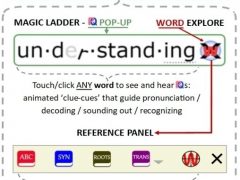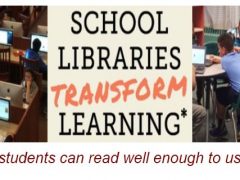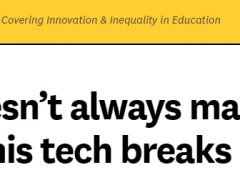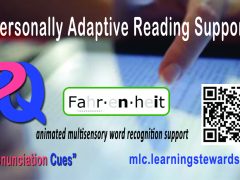Imagine how different everything about literacy learning (and teaching) would be if the orthography was itself able to interactively guide and support learners through learning to recognize and understand any unfamiliar word they encounter. Interactive Orthography





